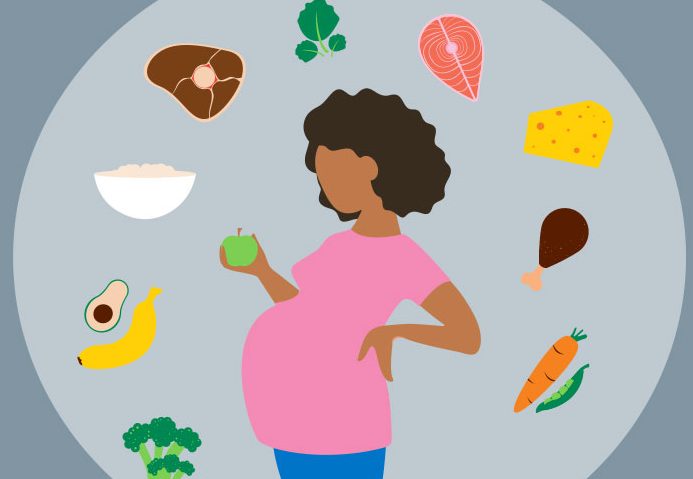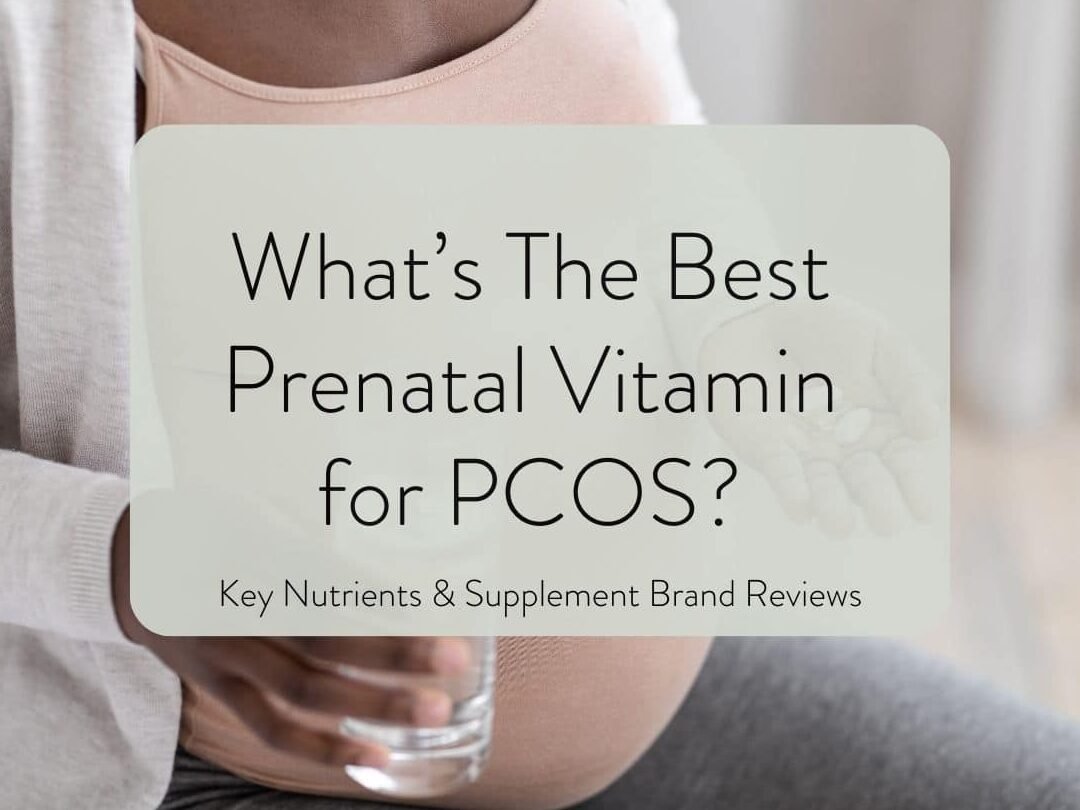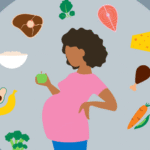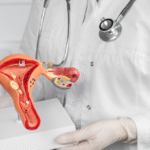Now Reading: Foods to Avoid When Preparing for Pregnancy
-
01
Foods to Avoid When Preparing for Pregnancy
Foods to Avoid When Preparing for Pregnancy
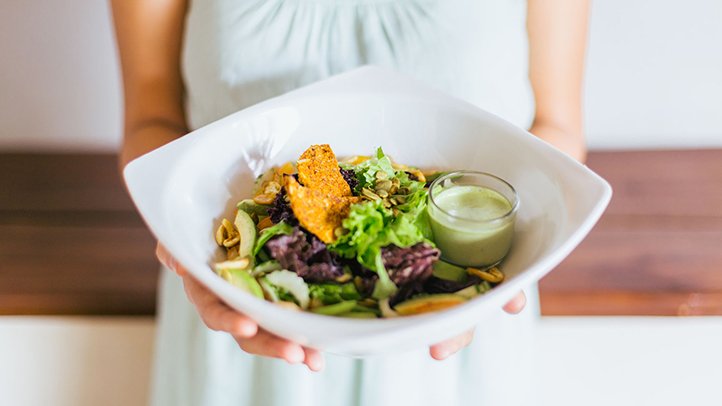
Preparing for pregnancy involves making many important choices. One key decision is about diet.
Understanding which foods to avoid can help ensure a healthy start for both mother and baby. Pregnancy preparation is about more than buying baby clothes and reading parenting books. It is a time to focus on health and well-being. Diet plays a crucial role in this.
Some foods can pose risks to a developing baby. They may contain harmful bacteria or chemicals. Others might lead to nutritional imbalances. Knowing what to eat and what to avoid can make a big difference. It helps create the best environment for your baby. This guide will explore foods to steer clear of during this special time. Taking these steps now can lead to a healthier pregnancy journey.
Introduction To Pre-pregnancy Nutrition
Preparing for pregnancy is a remarkable journey, and what you eat plays a vital role in it. Pre-pregnancy nutrition is not just about avoiding certain foods—it’s about embracing a diet that sets the stage for a healthy future for you and your baby. Your nutritional choices can significantly impact your fertility and overall well-being. So, let’s dive into how the right diet can make a difference.
Importance Of Diet
Your diet acts as the foundation for a successful pregnancy. It’s not just about eating the right foods but also steering clear of those that could hinder your chances of conception. Imagine your body as a garden; the nutrients you provide are the seeds that help it flourish. A balanced diet, rich in vitamins and minerals, prepares your body for the demands of pregnancy.
Consider this: a friend of mine was struggling to conceive and decided to revamp her diet. She added more fruits, vegetables, and whole grains while cutting down on processed foods. Within months, she noticed a significant improvement in her health, ultimately leading to a successful pregnancy. Her story illustrates how crucial your dietary choices are in shaping your pregnancy journey.
Impact On Fertility
The foods you consume can directly affect your fertility. Certain foods can enhance your chances of conception, while others might act as barriers. It’s fascinating how your body’s reproductive system responds to the nutrients it receives. Have you ever thought about how a simple change in diet could potentially alter your fertility?
Research shows that excessive caffeine or alcohol intake can negatively impact fertility. On the other hand, foods rich in antioxidants, like berries and nuts, can promote reproductive health. So, when planning your meals, ask yourself: are you nourishing your body for the best possible outcome?
Reflect on how your eating habits might be influencing your fertility. Are there foods you consume that could be holding you back? By making mindful choices, you can create an environment conducive to conception. Embrace foods that support your reproductive health and give your body the best chance to thrive.
Processed Foods And Additives
Preparing for pregnancy involves eating the right foods. Avoiding processed foods is crucial. These foods often contain additives that aren’t healthy. They can impact your body’s readiness for pregnancy. Processed foods usually lack essential nutrients. They often contain high levels of sodium and sugar. This can affect both your health and your future baby’s health. Understanding the risks associated with processed foods helps make better dietary choices. Let’s explore some specific additives to avoid.
Artificial Sweeteners
Artificial sweeteners are common in processed foods. They replace sugar but may have negative effects. Some studies link them to metabolic issues. Aspartame and saccharin are examples to watch out for. These sweeteners can disrupt your body’s natural balance. Choosing natural sweeteners like honey or maple syrup is better. They provide a healthier alternative.
Preservatives And Chemicals
Preservatives extend food shelf life but can be harmful. They often contain chemicals that affect your health. BHA and BHT are common preservatives to avoid. These chemicals may lead to hormonal imbalances. Fresh foods are a safer choice. They are free from harmful chemicals. Eating fresh helps maintain a healthy pregnancy environment.
High Mercury Fish
Avoid high mercury fish like shark, swordfish, and king mackerel when planning pregnancy meals. These fish can harm fetal development due to their mercury content. Opt for safer seafood options to ensure healthy pregnancy preparation.
Preparing for pregnancy involves many lifestyle changes. Diet is a key part of this. One important aspect is avoiding high mercury fish. Mercury is a toxic metal. It can harm a baby’s developing brain. Eating fish high in mercury can pose risks. Understanding which fish to avoid is crucial.
Dangers Of Mercury
Mercury can negatively affect the nervous system. It is especially harmful to unborn babies. High mercury levels can lead to developmental delays. This includes issues with speech and coordination. Pregnant women should be cautious. Consuming too much mercury can have long-term effects. Choosing the right fish helps ensure a healthy pregnancy.
Safe Seafood Choices
Many fish have low mercury levels. They are safe for pregnancy. Salmon is a great choice. It is rich in omega-3 fatty acids. These are good for the baby’s brain. Shrimp and catfish are also safe options. They have low mercury content. Sardines are another excellent choice. They are rich in nutrients and low in mercury. Eating these fish supports a healthy pregnancy.
Caffeine Consumption
Caffeine is a common part of many people’s daily routine. From your morning coffee to a mid-afternoon tea, it’s easy to consume. Yet, for those preparing for pregnancy, caffeine intake requires careful attention. It can impact your body in ways that might affect conception. Understanding how caffeine influences your pregnancy journey is crucial. Let’s explore this topic in detail.
Effects On Conception
Caffeine can affect fertility. It may lower the chance of conceiving. Studies suggest high caffeine intake can disrupt hormone levels. This disruption can lead to irregular menstrual cycles. Irregular cycles make it harder to predict ovulation. This can complicate efforts to conceive. Caffeine can also impact the quality of eggs. Poor egg quality can delay pregnancy. It’s essential to be aware of these effects.
Moderation Tips
Keep caffeine intake under control. Limit daily consumption to 200 mg. That’s about one 12-ounce cup of coffee. Switch to decaffeinated versions where possible. Herbal teas can be a good alternative. Watch out for hidden caffeine in soft drinks. Chocolate also contains small amounts of caffeine. Read labels to monitor your intake. Gradually reduce caffeine to avoid withdrawal symptoms. Stay hydrated with water or juice instead.
Alcohol And Smoking
Preparing for pregnancy involves making crucial lifestyle changes. Alcohol and smoking are two habits that need attention. Both can affect fertility and harm your future baby’s health. Understanding their risks can guide you to healthier choices.
Risks To Fertility
Alcohol can reduce fertility. It disrupts hormone balance and affects ovulation. Regular consumption can lower chances of conception. Smoking is equally harmful. It damages reproductive organs and affects egg quality. The chemicals in cigarettes can lead to genetic issues.
Both habits increase miscarriage risks. They affect the fetus’s development, leading to complications. Avoiding them can improve fertility and pregnancy outcomes.
Alternatives For Relaxation
Finding alternatives can make the transition easier. Herbal teas are a soothing choice. Chamomile and peppermint help relax the mind. Yoga offers physical and mental relief. It reduces stress and improves body awareness.
Engaging in hobbies can distract from cravings. Painting or gardening can provide joy and relaxation. Breathing exercises are simple yet effective. They calm the mind and reduce anxiety.
Trans Fats And Saturated Fats
Eating trans fats and saturated fats can affect fertility. Foods like fried snacks, baked goods, and fatty meats should be minimized. Opt for healthier fats like olive oil and nuts to support pregnancy preparation.
Preparing for pregnancy is an exciting journey, and nutrition plays a crucial role in this process. One key aspect to focus on is the type of fats you consume. Trans fats and saturated fats can negatively impact your fertility and overall health. These fats are found in many processed foods and can disrupt your body’s natural balance.
Impact On Hormones
Eating trans fats can affect your hormone levels. They can lead to insulin resistance and inflammation. This can make it harder for your body to regulate hormones essential for pregnancy.
Saturated fats, often found in red meat and full-fat dairy, can also be a concern. They may increase estrogen production, which could disrupt your menstrual cycle. It’s important to be mindful of these effects when planning your diet.
Think about your daily meals. Are they packed with fried foods or processed snacks? Making small changes can have a big impact on your hormone health.
Healthy Fat Options
Choosing the right fats can support your fertility. Consider incorporating more omega-3 fatty acids into your diet. Foods like salmon, walnuts, and flaxseeds are excellent choices.
Monounsaturated fats are another good option. Avocados, almonds, and olive oil provide these beneficial fats. They help reduce inflammation and support hormone production.
You don’t have to give up all your favorite foods. Instead, find healthier alternatives that still satisfy your cravings. How about swapping your regular fries for baked sweet potato wedges?
Making these changes might seem challenging at first. But remember, you’re doing this for your future family. Every small step you take now brings you closer to a healthy pregnancy.
High Sugar Foods
Preparing for pregnancy requires careful dietary choices. High sugar foods can negatively impact blood sugar levels, which isn’t ideal for conceiving. Choose nutrient-rich options like fruits and vegetables to support a healthy pregnancy journey.
Preparing for pregnancy requires mindful eating choices. High sugar foods can impact your health and your baby’s development. Excessive sugar intake can lead to weight gain and energy spikes. It’s important to be aware of how sugar affects your body. Knowing which foods to avoid can help maintain a healthy pregnancy. Let’s explore why managing sugar is important and what alternatives can satisfy your sweet tooth.
Blood Sugar Levels
High sugar foods can cause blood sugar levels to spike. Sudden increases can lead to insulin resistance over time. This resistance affects fertility and pregnancy health. Consistent high sugar levels may result in gestational diabetes. This condition can complicate pregnancy and impact the baby’s health. Monitoring sugar intake helps keep blood sugar stable. Stable levels promote overall well-being for expectant mothers.
Healthier Sweet Alternatives
Choosing healthier sweet alternatives can make a big difference. Fresh fruits offer natural sweetness and vital nutrients. Berries, apples, and oranges are great choices. They provide fiber and vitamins without added sugar. Honey and maple syrup can sweeten dishes naturally. These options are less processed than refined sugars. Dark chocolate with high cocoa content can satisfy cravings. It contains antioxidants and is lower in sugar. Opting for these alternatives supports a healthier pregnancy journey.
Unpasteurized Products
Pregnancy preparation requires careful food choices. Avoid unpasteurized products like certain cheeses, milk, and juices. These can contain harmful bacteria. Stay safe with pasteurized options instead.
Preparing for pregnancy is an exciting journey, but it also comes with essential dietary considerations. One critical aspect is steering clear of unpasteurized products. These foods can harbor harmful bacteria that pose risks to both you and your developing baby. Understanding the implications of consuming unpasteurized items can help you make safer choices for a healthy pregnancy.
Bacteria Risks
Unpasteurized products, like certain cheeses and dairy, can contain bacteria such as Listeria, Salmonella, and E. coli. These bacteria can lead to foodborne illnesses, which are particularly dangerous during pregnancy.
Listeria, for instance, can cause miscarriage or premature birth. It’s a risk not worth taking. Consider how vulnerable your developing baby is to these infections. Ensuring your dairy products are pasteurized can greatly reduce these risks.
Safe Dairy Choices
Switching to pasteurized dairy products is a simple yet powerful step you can take. Pasteurized milk, cheese, and yogurt provide essential nutrients without the risk of harmful bacteria.
Imagine enjoying a creamy yogurt knowing it’s safe for your baby. If you love cheese, try varieties like cheddar or mozzarella, which are often pasteurized and widely available.
Making these choices allows you to maintain your love for dairy without compromising safety. You don’t have to sacrifice taste for health; you just need to be mindful of your options.
Are you ready to make these changes for a healthier pregnancy journey? Consider reading labels carefully next time you shop. Your commitment to safety starts with the choices you make in the grocery aisle.
Conclusion And Lifestyle Adjustments
Choosing the right foods is essential when preparing for pregnancy. Avoid processed foods, excessive caffeine, and alcohol. Prioritize whole foods and balanced meals for better health and well-being.
Preparing for pregnancy involves more than just health checks and prenatal vitamins. It requires thoughtful lifestyle adjustments, particularly in your diet. By avoiding certain foods, you not only optimize your body’s readiness for pregnancy but also set a foundation for a healthier lifestyle. Let’s delve into some practical tips and insights that can guide your journey.
Balanced Diet Practices
Adopting a balanced diet is crucial for your health and your baby’s development. Prioritize fresh fruits, vegetables, whole grains, and lean proteins. These foods provide essential nutrients without harmful additives.
Avoid processed foods high in sugar and unhealthy fats. They can lead to unnecessary weight gain and other health issues. Instead, choose nutrient-rich alternatives like nuts, seeds, and legumes.
Consider consulting a nutritionist. A tailored plan can help you meet your dietary needs effectively. What adjustments can you make today to ensure a healthier tomorrow?
Long-term Health Benefits
Embracing a healthier diet now can offer significant long-term benefits. It can reduce the risk of chronic diseases like diabetes and heart disease. This not only improves your quality of life but also ensures you’re in the best shape for pregnancy.
A healthy diet can enhance your energy levels and mood. This positivity can be infectious, encouraging your family to adopt similar practices. Imagine the ripple effect of your dietary changes on those around you.
What legacy do you want to leave for your future family? Making mindful dietary choices today can lead to a healthier, happier life for you and your loved ones.
Lifestyle adjustments may seem daunting at first, but small, consistent changes can lead to lasting benefits. How will you start your journey toward a healthier lifestyle today?
Frequently Asked Questions
What Food To Avoid While Trying To Conceive?
Avoid trans fats, processed meats, excessive caffeine, alcohol, and high-mercury fish. Choose whole, organic foods for fertility.
What Not To Eat When Expecting Pregnancy?
Avoid raw fish, undercooked meats, and unpasteurized dairy. Limit caffeine and stay away from alcohol. Skip processed meats and high-mercury fish. Stay clear of foods with raw eggs and excessive sugar.
What Decreases Your Chances Of Getting Pregnant?
Age, smoking, excessive alcohol, obesity, stress, and irregular cycles decrease pregnancy chances. Medical conditions like PCOS or endometriosis can also impact fertility. Maintaining a healthy lifestyle and consulting with a healthcare professional can improve your chances. Addressing underlying health issues is essential for boosting fertility.
What Should I Eat Before Planning For Pregnancy?
Focus on a balanced diet rich in fruits, vegetables, whole grains, and lean proteins. Include folic acid supplements to support neural development. Stay hydrated and limit caffeine and processed foods. Consult with a healthcare provider for personalized nutrition advice before planning pregnancy.
Conclusion
Eating well is key for a healthy pregnancy. Avoid certain foods to protect your baby. Raw fish can carry harmful bacteria. Soft cheeses may contain listeria. Limit caffeine to reduce health risks. Alcohol should be completely avoided. Choose fresh, well-cooked meals.
Prioritize fruits and vegetables. This way, your body gets essential nutrients. Preparing wisely leads to a healthier pregnancy journey. Remember, every choice matters. Small changes can make a big difference. Consult your doctor for personalized advice. Focus on nourishing your body and mind.
Enjoy this precious time with confidence and care.







